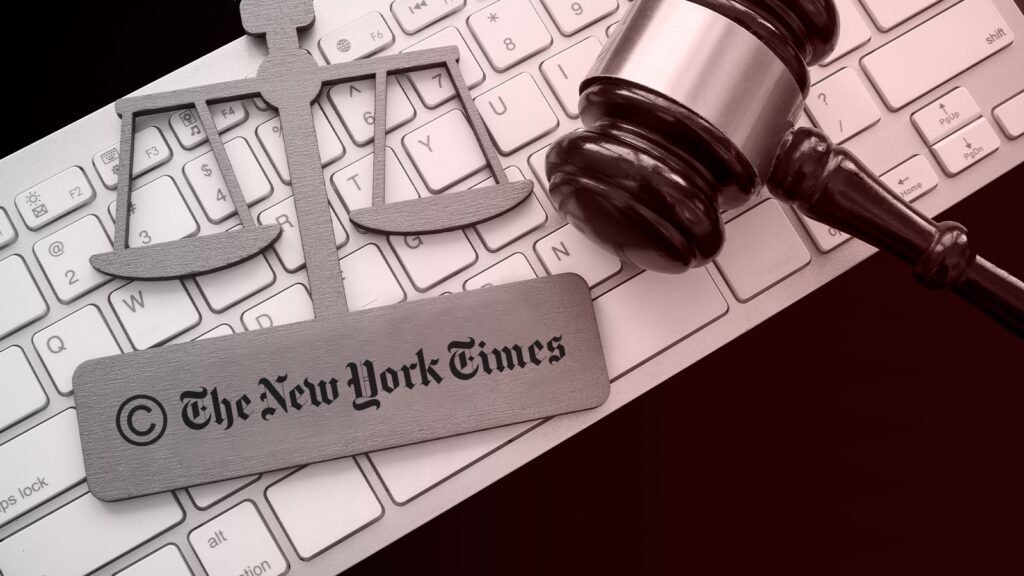The New York Times has initiated legal action against OpenAI and Microsoft, filing a copyright infringement lawsuit in a Manhattan federal court. The lawsuit alleges that the companies, while compiling information from various sources to train their generative AI and large-language model systems, disproportionately used content from The New York Times.
The lawsuit contends that this “unlawful use” of the paper’s copyrighted materials, including news articles, investigations, opinion pieces, reviews, and guides, jeopardizes The Times’s ability to provide its services by enabling the creation of competing products without permission or compensation. Damages sought in the lawsuit could amount to billions of dollars.
The lawsuit underscores the crucial role of The New York Times’ independent journalism in democracy, emphasizing its rarity and value. This legal action is part of a series of similar cases, including one initiated by over a dozen authors in September, challenging companies for using their content.
The rising popularity of language learning models has raised concerns, especially among news outlets, about the potential spread of misinformation without proper attribution and incentives to access the original source.
ChatGPT, launched in November 2022, quickly gained 100 million users in two months and surpassed 100 million weekly users a year later. OpenAI, ChatGPT’s parent company owned by Microsoft, recently faced internal conflict over its growth strategy and safety principles, resulting in the CEO’s ousting and subsequent reinstatement.
This internal turmoil did not address the escalating battle between information providers and AI technology operators.
OpenAI has faced multiple lawsuits over its use of copyrighted materials, including an ongoing class-action lawsuit by fiction writers. In September, the Getty photo archive sued a different AI firm over image use.
The New York Times’ lawsuit emerged after negotiations with tech firms regarding the use of its content reached an impasse. The Times sought an amicable resolution, proposing commercial agreements and AI product “guardrails.” The lawsuit highlights concerns about AI “hallucinations” potentially damaging the Times’s brand, citing misidentifications on Microsoft’s Bing Chat. While not specifying monetary damages, the lawsuit implicates OpenAI and Microsoft, valued at $80 billion and $2.8 trillion, respectively, for potential billions in statutory and actual damages.
The lawsuit against OpenAI and Microsoft by The New York Times has called for the destruction of any chatbot models and training data using copyrighted material from the newspaper.
Amid concerns over material use in training AI models like ChatGPT, OpenAI has sought partnerships to address such worries.
OpenAI recently partnered with German publisher Axel Springer to incorporate authoritative content into ChatGPT. The collaboration aims to provide users with news summaries from Axel Springer’s media brands, emphasizing transparency through attribution and links to full articles.
OpenAI expressed surprise and disappointment at the lawsuit, stating ongoing conversations with The New York Times had been productive.


